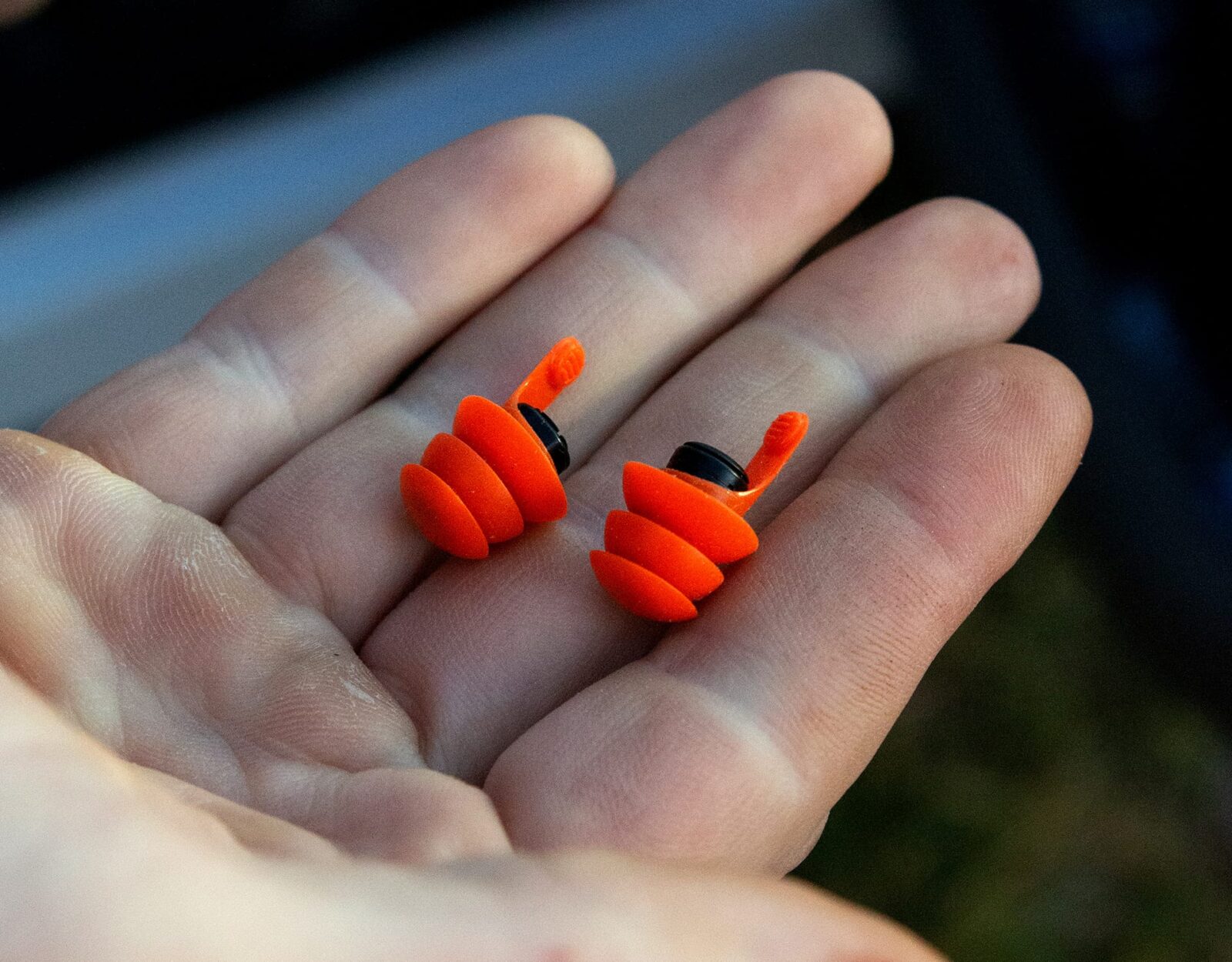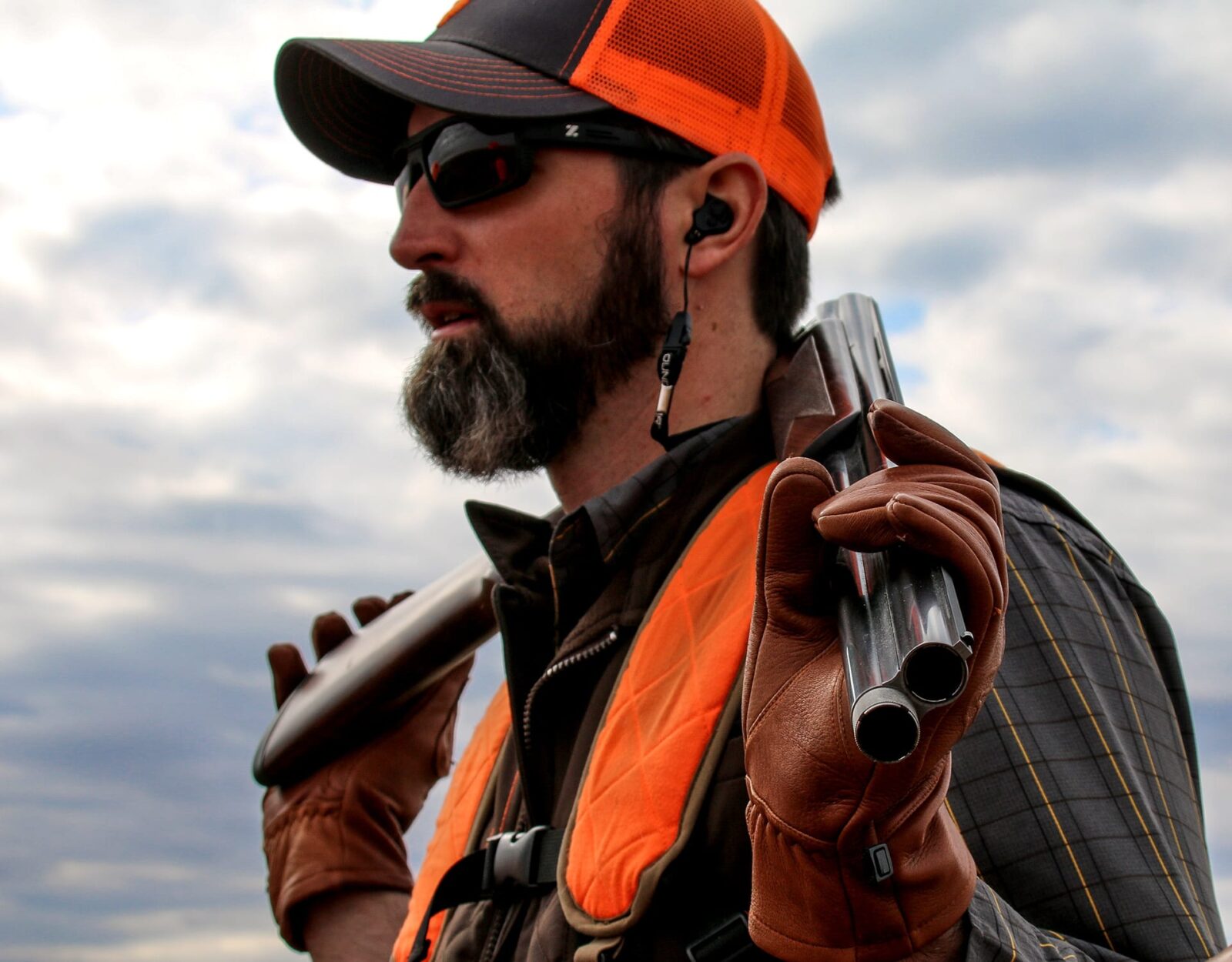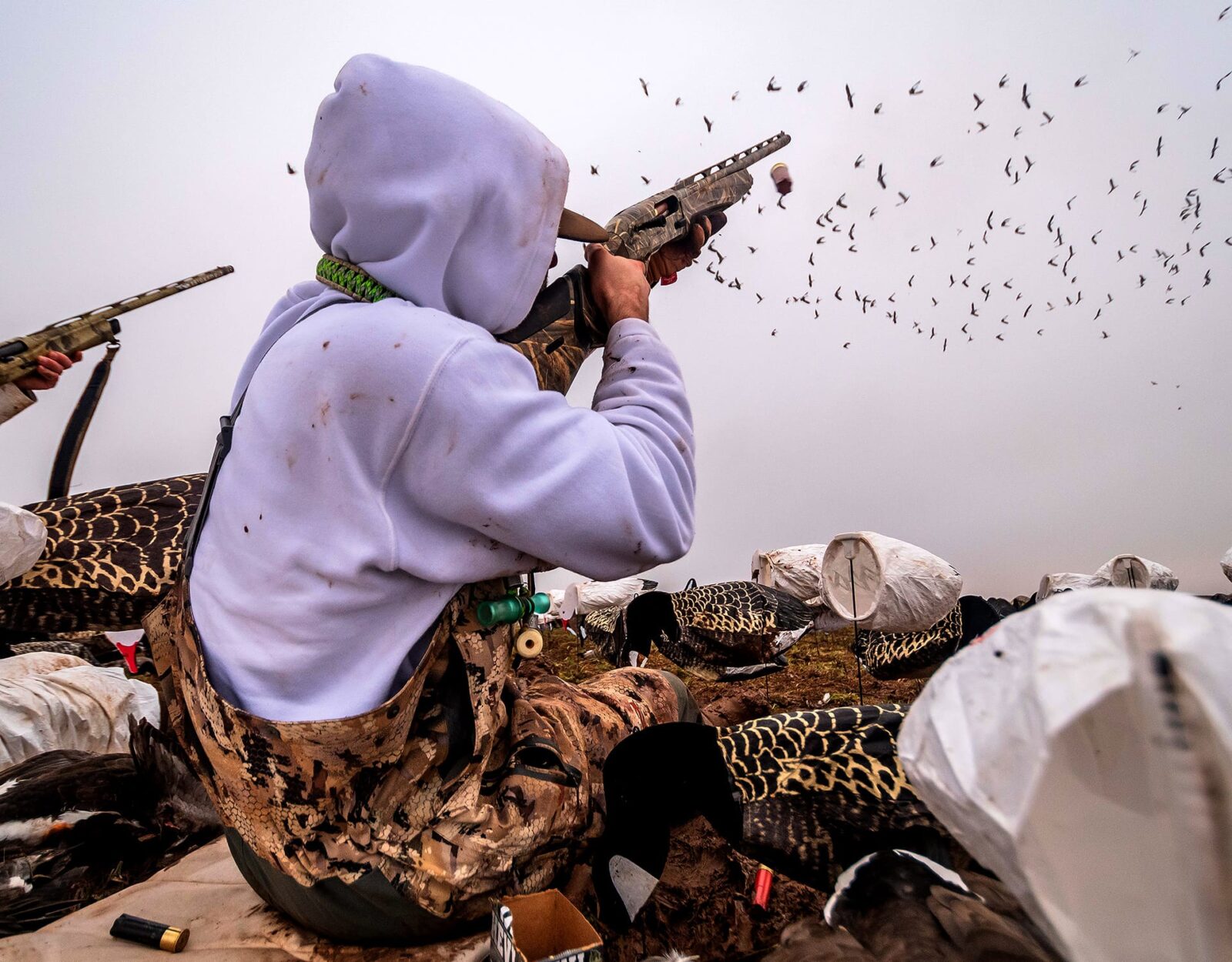Once your hearing has been damaged, it can’t be fixed. This is why hearing protection for hunters should be as important of a safety rule as responsible weapon handling. Most hunters are well-intentioned when it comes to hearing safety, but more often than not they forget or fail to wear properly any earplugs or muffs when taking a single shot in the field. It’s time to change that. Hearing protection and enhancement is now possible in the same device thanks to SoundGear’s technological advances.
What You Can’t Hear Will Hurt You
If you’re planning a day at the shooting range you’re likely prepared with sufficient hearing protection. Either from bulky muffs or little orange foam earplugs, shooters are expecting frequent loud noises from their own guns and others’ and take the time to wear something. But that’s not always what follows in the field, and it’s certainly not what many adults do in their day-to-day lives.
One study published by the U.S. Department of Health and Human Services found that only 66.7% of adults use any hearing protection around loud noises or music, and in another study, for those who do wear foam earplugs as hearing protection only one-half of them wear them correctly. The half that doesn’t gets half the amount of intended hearing protection. That means those foam earplugs, which only block 20-30 dB of sound when worn properly, might only be knocking off 10-15 dB of a gunshot that can be between 111-167 dB (the range from a .22 rifle to a .308 caliber).
And if you’re thinking that you’ll take the time to double up and wear earplugs and earmuffs, you’ll only get an extra 10-15 dB of protection than if you wear either one alone. And honestly, who does that in the field at a moment’s notice?
All hearing studies have shown anything over 85 dB can permanently damage one’s hearing, but at this level hearing loss doesn’t happen at once. Repeated gunshots, season after season of sighting in and shooting at game, will take its toll on most hunters, putting them at risk of being the one in 10 Americans who have enough hearing loss that it affects their ability to hear normal speech.
Now there are advanced solutions to protect your hearing from loud sounds while also enhancing the environment, or the conversations, around you. No longer is hearing protection an either-or proposition.

Hearing Protection and Enhancement
“There’s hearing protection and there’s hearing enhancement, and some people are really chasing the enhancement,” says SoundGear Product Manager Luke Maresh. “Especially from big game hunters we see a lot of people that just want that edge to be able to hear better than they can with normal hearing but also to not have to fumble around with electronic muffs or non-electronic, passive hearing protection for a single shot in the field. And communication is key with these hunters, as well as with waterfowlers, upland bird hunters, and competitive shooters. They want to be able to have a conversation with their hunting partner while being able to leave in their hearing protection.”
The solution from SoundGear to be able to accomplish that and much more is the Phantom. It’s the world’s first custom-fit, Bluetooth-compatible, rechargeable hearing enhancement, and protection device. It offers a 22 dB Noise Reduction Rating (NRR), up to 30 dB of gain/amplification, up to 23 hours of battery life, and the ability to connect to Apple and Android devices via Bluetooth. With SoundGear being owned by Starkey, the largest hearing aid designer and manufacturer in the U.S. the quality and technology behind their products go beyond the hunting companies who try to be a hearing aid company.
“Hunting, in general, is becoming more of an investment,” says Maresh. “Just to afford the ammo to go out and shoot or hunt is a bigger investment than it’s ever been. But a lot more people have been taking the time to learn about and use electronic hearing protection. Now with the Phantom it’s easier for them to justify the investment because they see they can wear them more than the handful of times they go hunting or to the shooting range. They can wear them to stream music or podcasts, or when running chainsaws or mowing the lawn.”

As a custom-fit product, the risk of wearing the Phantom incorrectly is essentially zero, so users have the full 22 dB level of hearing protection. Plus it has four preprogrammed settings to switch between depending on your listening environment, from max protect to amplifying almost everything.
With a network of about 3,000 audiologists around the country who take impressions of anyone ordering the Phantoms or other custom-fit products from SoundGear, it’s a fast and simple process to get a pair. The impression process is having a silicon solution pushed in the ear via a syringe, and this solution hardens to create a mold. Once SoundGear has the impression they ship the final product in about seven days.
As an electronic hearing enhancement and protection device, the circuitry inside the unit is designed to instantly (within one millisecond) receive and process any loud sound over 90 dB and reduce that noise by 22 dB. Once that sound is gone it instantly kicks back on, meaning any conversation you’re having when the gunshot or loud noise happens won’t interrupt the other person’s voice. It’s something static hearing protection, such as with earmuffs or foam earplugs, just can’t do because all sounds are suppressed and the only way to have a clear conversation is to remove the muffs or plugs.

Why Hunters Need Them
“Hunting-wise, as far as amplification goes it’s being able to hear the little things that you wouldn’t normally be able to pick up on, especially ambient noises, whether that’s certain sounds a duck makes or their wings whistling through the air,” says onX Hunt and SoundGear Ambassador Wade Shoemaker.
“I’m a photographer and I work with an outfitter for over 30 days a year,” he says, “and this might sound silly, but being able to hear a gun safety click off before it’s supposed to, that’s a big benefit if you’re hunting around a lot of people. So the real benefit of electronic amplification is hearing noises before you normally would and hearing noises you normally wouldn’t.”
“I have the Phantoms and I use them mostly for duck hunting,” Shoemaker says, “So whether it’s my shotgun blast or if I’m hunting with a lot of people and someone’s shotgun accidentally crosses over, you don’t have to worry about having your ears rung. You will still hear the shotgun blast, but it will just be suppressed. You’ll also hear your duck call, so it’s not like you’ll go to blow your call real hard and it’s shutting off and you’re not hearing anything. You’re still going to be able to hear it.”
With the availability of high-tech, comfortable hearing protection there’s little reason hunters should skip wearing it every time they carry or shoot their guns. The caveat with enhanced hearing devices, according to first-time wearers, is needing to adjust to them. Having them in when it’s windy, or while walking through crunchy dry grass, or hearing how the electronics may change the sound of the pitch of the calls one makes can be disorienting or cumbersome. But those reasons alone shouldn’t sway people away.
Once hunters understand how amplification is an advantage they didn’t have before, it’s game on. If you’ve been thinking about your auditory health and doing the most to protect your hearing, hear this–check out what SoundGear has to offer.